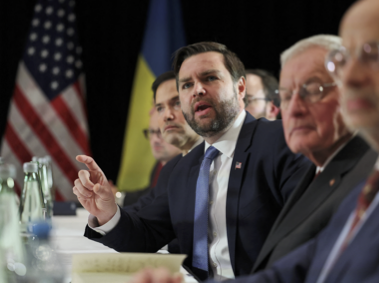People like to believe that the internet is global, and that technology has enabled a global village that everyone can access effortlessly through the web or social media. But the reality is that borders still exist, and human beings do business in local communities and countries that have different laws and social norms.
Perhaps this is why technology users and producers should be paying closer attention to the North American Free Trade Agreement (NAFTA) renegotiations. After all, so many of our online interactions are made possible by US companies — think of Facebook, Amazon, Netflix and Google.
Granted, the current NAFTA talks are shrouded in uncertainty. These are times without precedent, and the White House administration is particularly unpredictable. NAFTA could be scrapped, it could be replaced, or it could be left as is.
The talks offer something of great value, though: a view at how technology is being regarded within the context of trade between nations.
Most of the coverage of trade negotiations tends to focus on tangibles — cars, lumber, dairy. However, the technology industry, in both the United States and Canada, has been aggressively lobbying to ensure that its needs and interests are reflected in any future trade agreement. Which begs the question: what about our interests as citizens?
Data Localization and Personal Privacy
To start, data localization should be top of mind when it comes to trade talks. The free trade of data is often taken for granted, but every use of Facebook, Google or almost any other online service involves the free flow of data across borders. Given that these are largely US companies, it should come as no surprise that the US government is insisting that a renegotiated NAFTA should ban any attempts at data localization. Simply put, the United States wants to ensure that no local measures or laws can restrict the free flow of data across borders.
On the surface, the push for the free flow of data seems reasonable, and reflective of how people use the internet — but people on the internet also want privacy.
Tracey P. Lauriault, an assistant professor of critical media and big data at Carleton University, sums up the issue succinctly: “Until which time the US gets rid of the Patriot Act and its general and unsavoury dataveillance mentality and behaviour, I believe data localization is important. The US wants us to use their cloud services instead of us building competition and our own. I think privacy may be subsumed in the geofencing of data.”
Michael Geist, a CIGI Senior Fellow and the Canada Research Chair in Internet and E-Commerce Law at the University of Ottawa, concurs.
“I think it’s a challenging policy issue. Canada supports an open internet — and should support stronger net neutrality rules in NAFTA — and restrictions on data transfers and localization can undermine those goals. At the same time, limitations on those policies can have serious negative implications for privacy and security,” he says. “I think Canada needs to be more aggressive about carving out a space that preserves our ability to establish appropriate limitations for legitimate public policy reasons while also encouraging the free flow of information.”
There certainly is a fine balance between the free flow of information and the need to respect and protect privacy. Unfortunately, the Canadian federal privacy commissioner is not included in Canada’s NAFTA negotiating team, which makes achieving such a balance difficult.
The Office of the Privacy Commissioner (OPC) commented on the current negotiations: “Generally speaking, we would urge the Canadian government to ensure that privacy protection, as a human right, remains an important Canadian value that should be protected in any negotiations on NAFTA, and ultimately in any international trade agreement. We recognize the value of international data flows but believe we need to maintain strong privacy safeguards. When contemplating innovation and the free flow of data, a necessary component of a modernized NAFTA would be a clause that specifically recognizes privacy as a legitimate public policy objective.”
When asked about existing laws, and what might happen if NAFTA is not successfully renegotiated, the OPC’s office said: “PIPEDA [the Personal Information Protection and Electronic Documents Act]…make[s] clear that organizations must remain fully accountable for the protection of personal information that is transferred under such arrangements, no matter where that processing takes place.”
In the past, this privacy law has given the federal privacy commissioner some ability to hold US tech companies responsible for protecting Canadian citizens’ privacy. While many argue that PIPEDA’s reach is not long enough, the US government might see it as a threat to US tech companies’ ability to harvest and monetize Canadian personal information.
Data localization comes with a number of challenges, including the United States’ demand that rules or regulations mandating data sovereignty be forbidden, which, if successful, would prevent entities from insisting that their data reside in Canada. According to the OPC, this demand is directly opposed to existing Canadian government commitments:
“The Government of Canada itself has also weighed in on the issue with respect to cloud computing (distinct from data transiting in other ways or for other purposes). The federal government’s Cloud Adoption [Strategy] states: ‘To ensure Canada’s sovereign control over its data, all sensitive or protected data under government control will be stored on servers that reside in Canada. Data in transit will be appropriately encrypted.’”
In an era of pervasive surveillance, it’s important for the government to establish policies — in trade pacts and elsewhere — that protect citizens’ privacy rights. Canada has benefitted from these kinds of protections, precisely because Canadians do a lot of business with the United States, but also do not want to be subject to US-based surveillance. Canadian cloud services are an important part of protecting privacy.
The federal government is not alone in their championing of privacy rights, provincial privacy commissioners and agency have also been recognized globally for their innovative work in adapting and protecting citizens in the digital age. This is important to keep in mind as new trade rules will also have an impact at the provincial level.
“The US Trade Representative made it explicit going into these talks that it intends to ‘establish rules to ensure that NAFTA countries do not impose measures that restrict cross-border data flows and do not require the use or installation of local computing facilities.’ BC and Nova Scotia have public sector privacy laws that do exactly that, so a lot of people were concerned that our privacy could end up as a bargaining chip,” says Vincent Gogolek, executive director of the BC Freedom of Information and Privacy Association.
Employment and Immigration
The intersection of technology and trade doesn’t just exist digitally. NAFTA renegotiations, while largely focused on the trade of goods, will cover labour and livelihood, and the tech sector is no exception.
The current NAFTA agreement has provisions to grant temporary work visas to professionals from 63 different professions. However, given that NAFTA was negotiated decades ago, most technology professionals do not fall within these categories. Tech companies have been lobbying to have this list expanded, but given the current US political climate around immigration, changes don’t seem likely.
Meanwhile, Canada has been making an active effort to let international tech talent know that this country is open and willing to do business.
E-Commerce and Duties
Ironically, where Canada’s talent doors are open, their e-commerce doors are closed. As many Canadian consumers are aware, when you buy something online from a merchant who is not in Canada, extra duties and taxes are often applied when the goods or services cross the border.
This is because of what’s called the de minimis threshold or the amount of money that you can spend online without customs being applied. Canada has one of the lowest limits in the world, $20, which means anything above that number will have added fees applied. Unsurprisingly, there are calls on both sides of the border to increase it.
The United States wants Canada to increase that number from $20 to $800, which is the current US limit.
Andrea Stairs, general manager of eBay Canada points out that “Canada’s de minimis threshold, which is the lowest in the developed world, is a lose-lose-lose proposition: Not only does it constrain the growth of internet-enabled small business, it’s a drag on taxpayers and consumers.”
Shopify Canada has a similar position, their press officer said that: “Shopify supports hundreds of thousands of businesses worldwide with a large portion of those being based in North America. We know that the current de minimis threshold in Canada has had a negative impact on those trying to sell online. This barrier is felt on both sides of the border as entrepreneurs and small-medium sized businesses are having to take on added costs and usually sunken costs to satisfy the $20 limit.”
It's often hard to see how trade policy impacts people directly, but that’s not the case for technology and trade. Consumers and businesses alike feel the impact now, and they will after NAFTA renegotiations, regardless of the outcome.
The data-collecting, information-sharing, e-commerce-facilitating internet environment will increasingly be governed by trade pacts. While uncertainty is on the table — the US has also demanded a five year sunset clause for NAFTA — Canadians still have some leverage.
If US companies and negotiators are unwilling to bend to the needs of Canadians — privacy and fair value are a good start — than Canadian companies will certainly be there to provide the same goods and services. A trade agreement that hinders local industry, infrastructure, innovation and competition will not benefit the country in the long run.
NAFTA is still a long way from being renewed. Canadians still have a chance to express their views and demand that government protect their interests.



